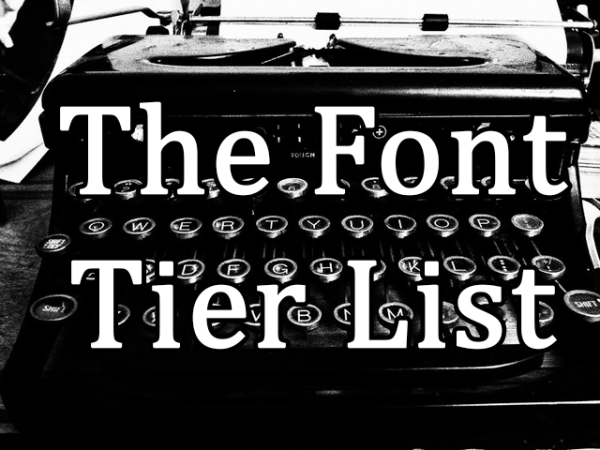Banned Books: Is the pen really greater than the sword?
Everyone knows the saying the pen is greater than the sword, but if that were really true why wouldn’t we try to impose restrictions on what read like weapons? Oh wait, we do. In 2021, the American Library Association tracked 729 challenges (a book challenge is when a group attempts to get a book removed from the shelf) to library, school, and university materials including 1597 targeted books. From July 2021 to June 2022, 1648 unique book titles spanning 1261 authors, 290 illustrators, and 18 translators were challenged.
The top three most challenged books of 2021 were Gender Queer by Maia Kobabe, Lawn Boy by Jonathan Evison, and All Boys Aren’t Blue by George M. Johnson.
Book banning isn’t new. Book challenges have existed for decades, but in recent years, what has changed is the increasing politicization of book banning. Previously, the majority of book challenges were brought about by parents who disagreed with the content of a book their children had brought home from school, but now some book challenges are brought about by other members of the community without kids or contain long lists of books from the internet. Additionally, politicians have spoken out and proposed bills attempting to ban certain content. 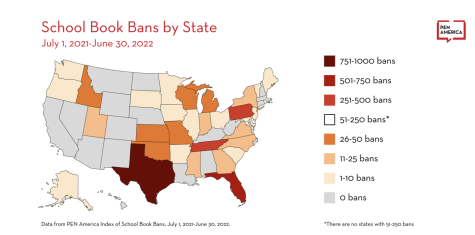
Those who support book banning argue that some content is not appropriate for children and exposes them to ideas that are too mature. Those who are against it argue that book banning is a form of censorship that stops children from being able to learn to think for themselves. Additionally, they argue that representation in books is crucial for children to learn to understand their own identities and beliefs.
According to a report from PEN America, a free speech advocacy organization, 41% of challenged books included LGBTQIA representation, 40% contained a primary or secondary protagonist of color, and 20% directly addressed racism. As reported to the Office of Intellectual freedom, the top three reasons cited for banning books are 1) the book was considered “sexually explicit” 2) offensive language and 3)the book not considered to be “fit” for a certain age group. PEN America estimated that around 40% of the banned material from July 2021- June 2022 was connected to proposed or enacted legislation or political pressure.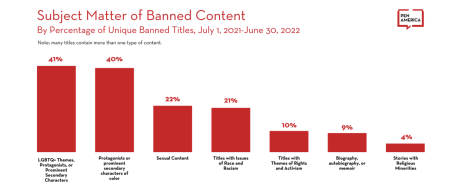
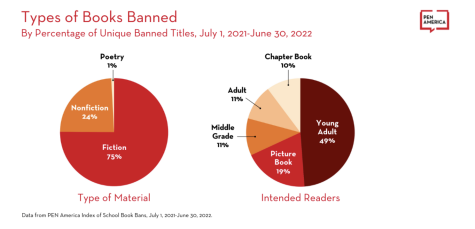
PEN America also found that there were at least 50 organizations dedicated to challenging books, of which 73% formed after, indicating an unprecedented uptake. 20% of the books banned in the 2021-2022 school year were the direct result of the actions of one these groups and another 30% showed some sort of impact of their influence. 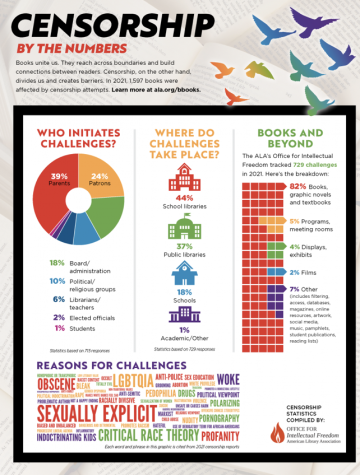
The issue locally:
As always South Carolina is right in the middle of all the drama.
In 2021, Henry Mcmaster wrote a letter asking the department of education to investigate Gender Queer: A Memoir, by Maia Kobabe being located in a schools library. He claimed the book was “sexually explicit” and “pornographic.”
In April 2022, a provision was proposed to the state budget to cut funding to any public libraries that housed “materials that appeal to the prurient interest” to children under the age of 13” by Senator Josh Kimbrell in response to community complaints from parents. Libraries all over the state spoke out against it including Charleston County Public Library, Richland County Public library and more, saying the provision is too vague to make compliance easy.
In October 2022, 97 books were removed from Beaufort county school libraries including The Handmaid’s Tale and Perks of being a Wallflower. In Greenville County, a proposal to ban books promoting sexuality was recently proposed but not passed.
The issue surrounding book challenges and book banning is situated in a larger argument about censorship and representation. Attempts to diverge from the predominant tellings of American history in order to shed light on some of its past atrocities through integrating diverse perspectives and teaching critical race theory have been met with backlash and the battleground is school board meetings and libraries across the country. There may be an increased interest in book challenges, but rest assured that librarians and teachers all over the country are fighting against it.
You might be wondering why you should care, but just yesterday the Lexington county school district was sued by the freedom caucus, a right wing group made up of the most conservative members in our house of representatives, for teaching concepts associated with critical race theory. The lawsuit was not filed on behalf of students, teachers or parents, and the group says they have plans to follow it with lawsuits to other districts. This issue is closer to home than you might think and will continue to grow. If you don’t stay informed your access to information might be taken away without you even noticing. So please, stay informed. Information is your right.



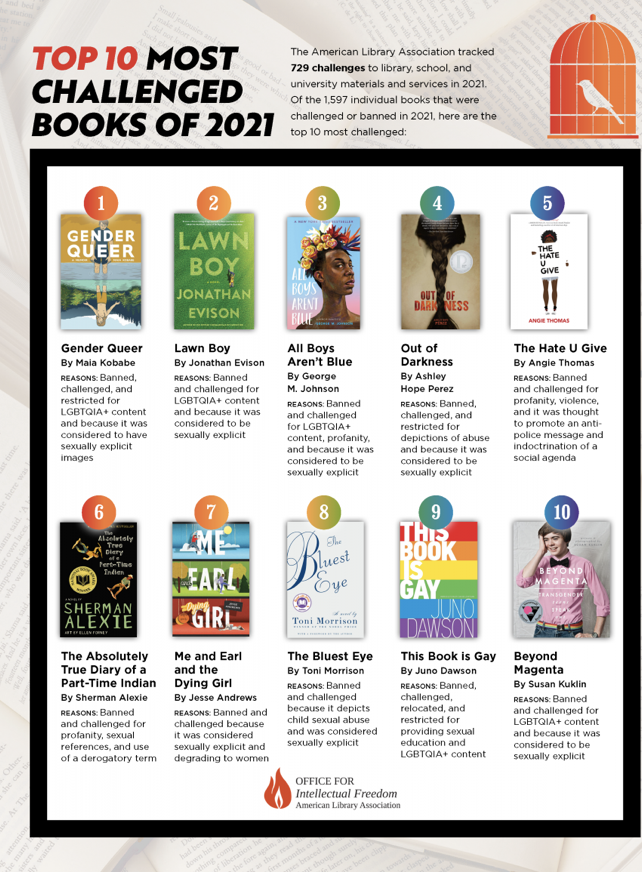




![Presidential Rizz [RANKED]](https://amhsnewspaper.com/wp-content/uploads/2024/03/jfk-600x338.jpg)

